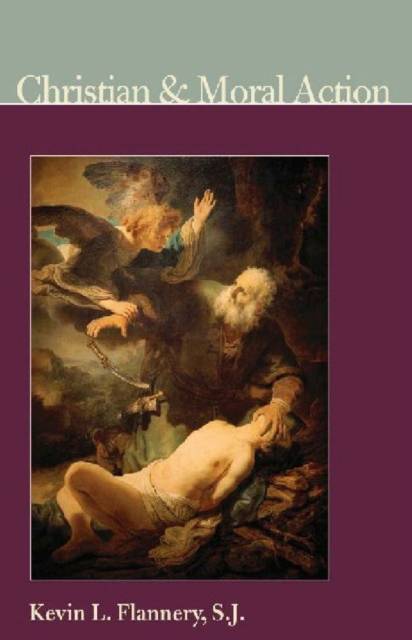
Door een staking bij bpost kan je online bestelling op dit moment iets langer onderweg zijn dan voorzien. Dringend iets nodig? Onze winkels ontvangen jou met open armen!
- Afhalen na 1 uur in een winkel met voorraad
- Gratis thuislevering in België vanaf € 30
- Ruim aanbod met 7 miljoen producten
Door een staking bij bpost kan je online bestelling op dit moment iets langer onderweg zijn dan voorzien. Dringend iets nodig? Onze winkels ontvangen jou met open armen!
- Afhalen na 1 uur in een winkel met voorraad
- Gratis thuislevering in België vanaf € 30
- Ruim aanbod met 7 miljoen producten
Zoeken
Omschrijving
Written for non-specialists, this concise and accessible work by moral philosopher Kevin L. Flannery engages in a careful reflection of the moral issues of greatest importance in the lives of Christians today. After introductory chapters on the relationship between ethics and church teaching, and on the relevance of action theory--the study of the nature and structure of human actions--Flannery applies Aristotle's and Thomas Aquinas's theory of human action to the following topics: sexual morality, reproduction, killing and keeping alive, cooperation in the evil acts of others, and conscience. The book treats a number of controversial issues, not so much because they are controversial, but because they usefully explain the philosophical principles underlying church teaching. Flannery considers, for example, whether it is moral for a spouse who has contracted a disease such as HIV or AIDS to make use of a prophylactic during sexual intercourse. Flannery also addresses whether it is moral for a politician to vote in favor of legislation that permits same-sex marriage, or for a family or doctor to withdraw nutrition and hydration from a patient in a vegetative state. A major theme discussed throughout the book is intention and its effect on the moral character of human acts. ABOUT THE AUTHOR:
Kevin L. Flannery, S.J., professor of philosophy at the Pontifical Gregorian University in Rome, is author of many works on ethics and on the history of logic, including Acts Amid Precepts: The Aristotelian Logical Structure of Thomas Aquinas's Moral Theory (CUA Press).
Kevin L. Flannery, S.J., professor of philosophy at the Pontifical Gregorian University in Rome, is author of many works on ethics and on the history of logic, including Acts Amid Precepts: The Aristotelian Logical Structure of Thomas Aquinas's Moral Theory (CUA Press).
Specificaties
Betrokkenen
- Auteur(s):
- Uitgeverij:
Inhoud
- Aantal bladzijden:
- 107
- Taal:
- Engels
- Reeks:
- Reeksnummer:
- nr. 3
Eigenschappen
- Productcode (EAN):
- 9780977310357
- Verschijningsdatum:
- 30/01/2013
- Uitvoering:
- Paperback
- Formaat:
- Trade paperback (VS)
- Afmetingen:
- 136 mm x 224 mm
- Gewicht:
- 185 g

Alleen bij Standaard Boekhandel
+ 60 punten op je klantenkaart van Standaard Boekhandel
Beoordelingen
We publiceren alleen reviews die voldoen aan de voorwaarden voor reviews. Bekijk onze voorwaarden voor reviews.











